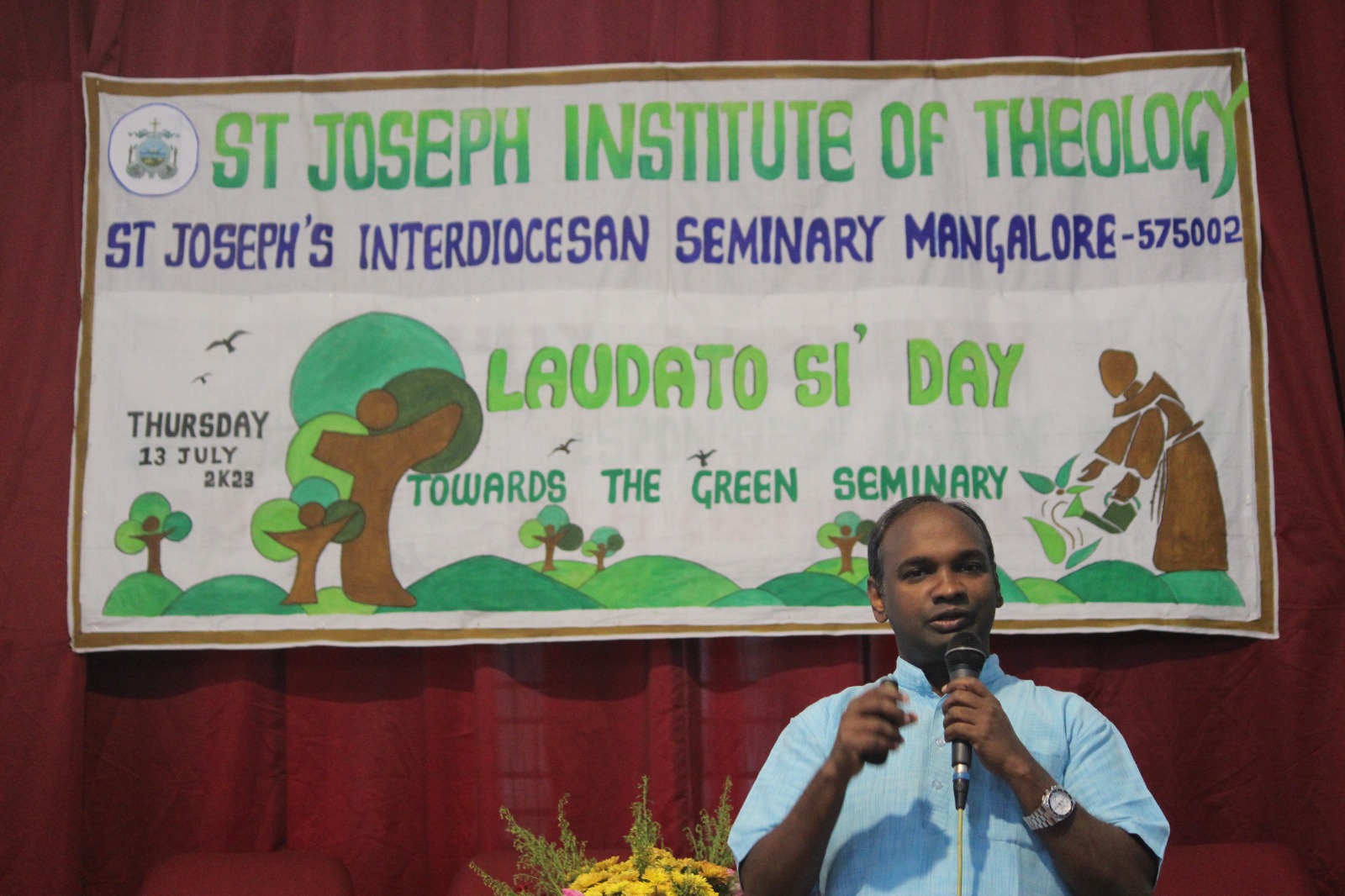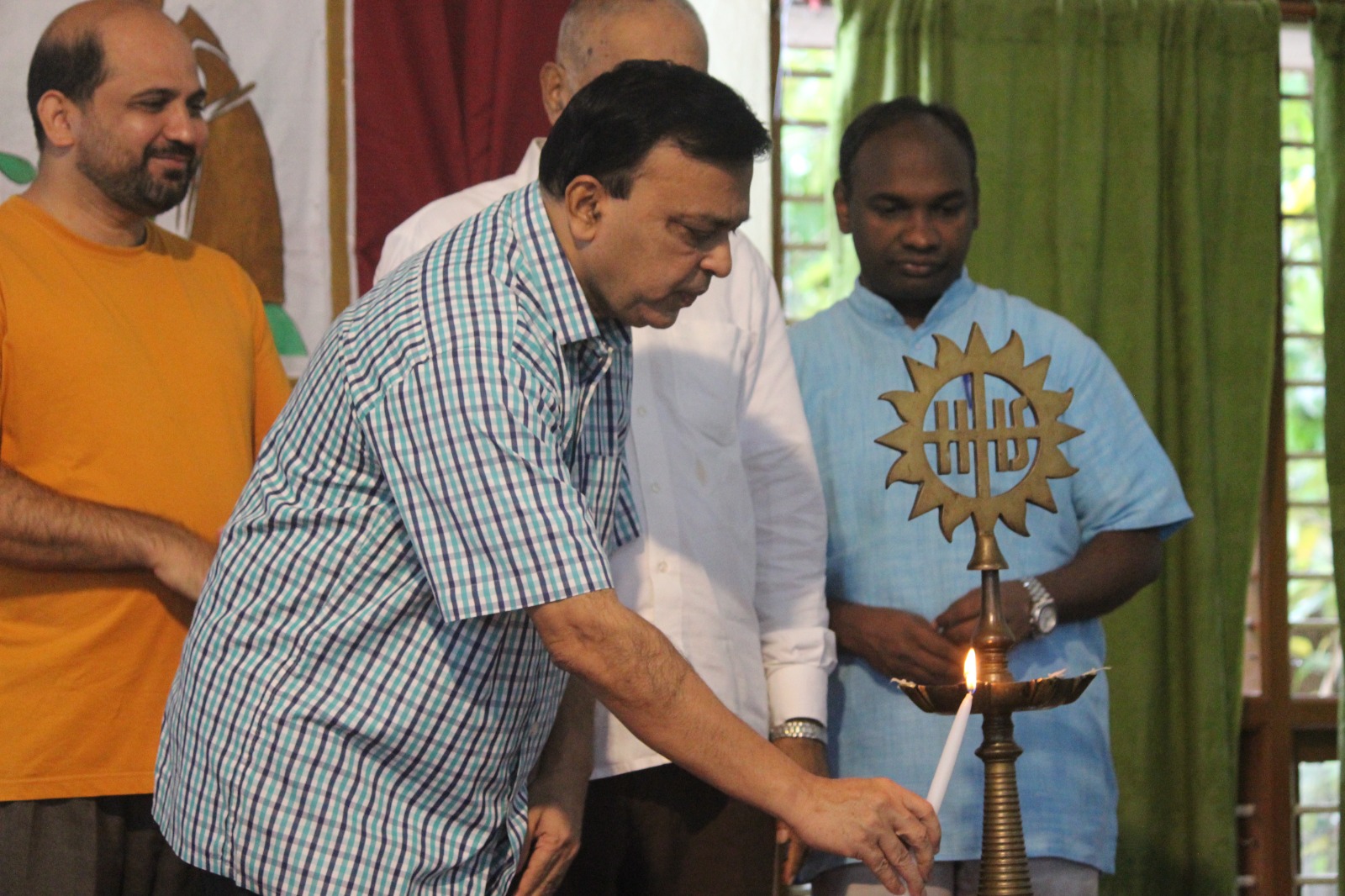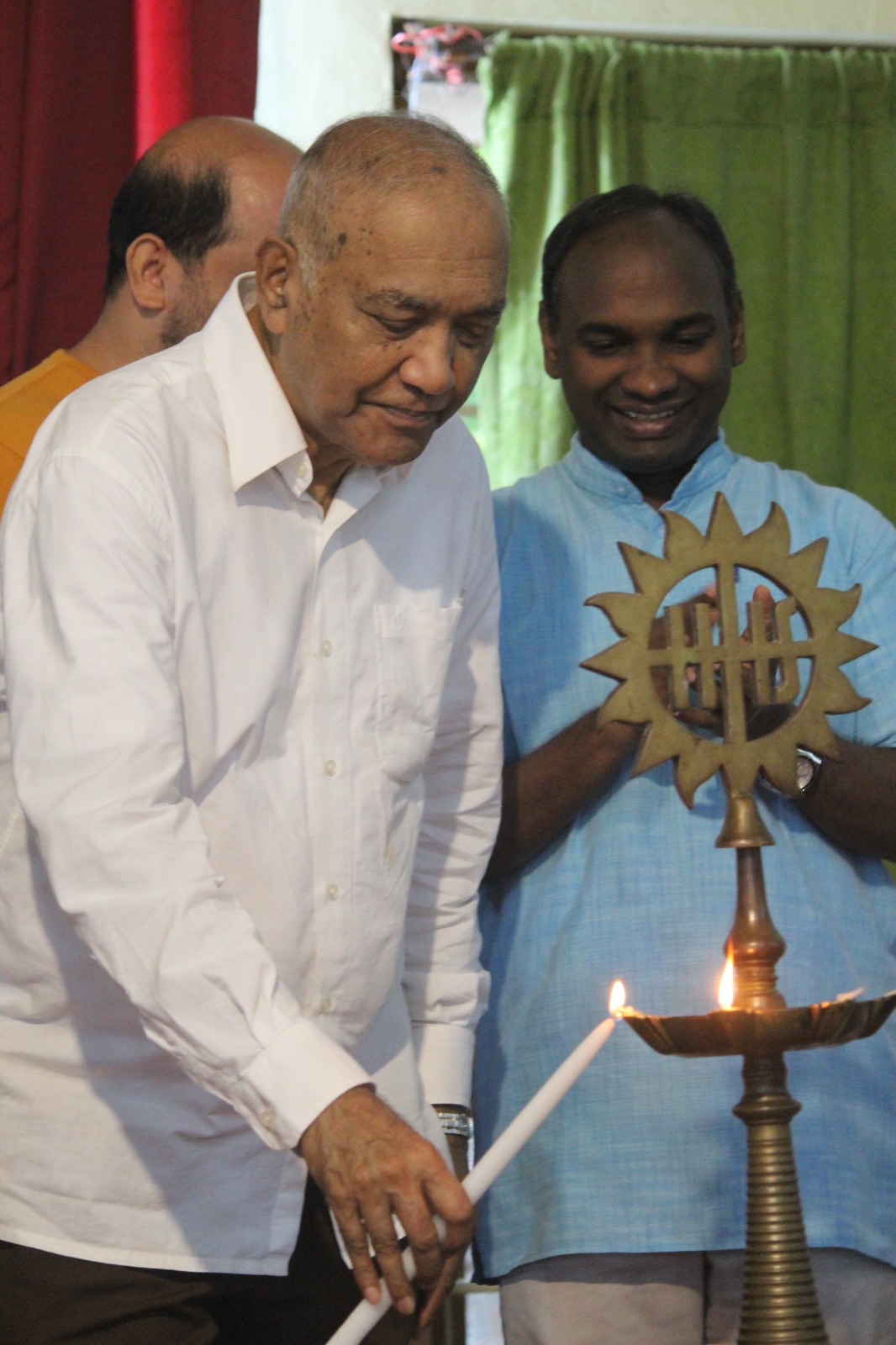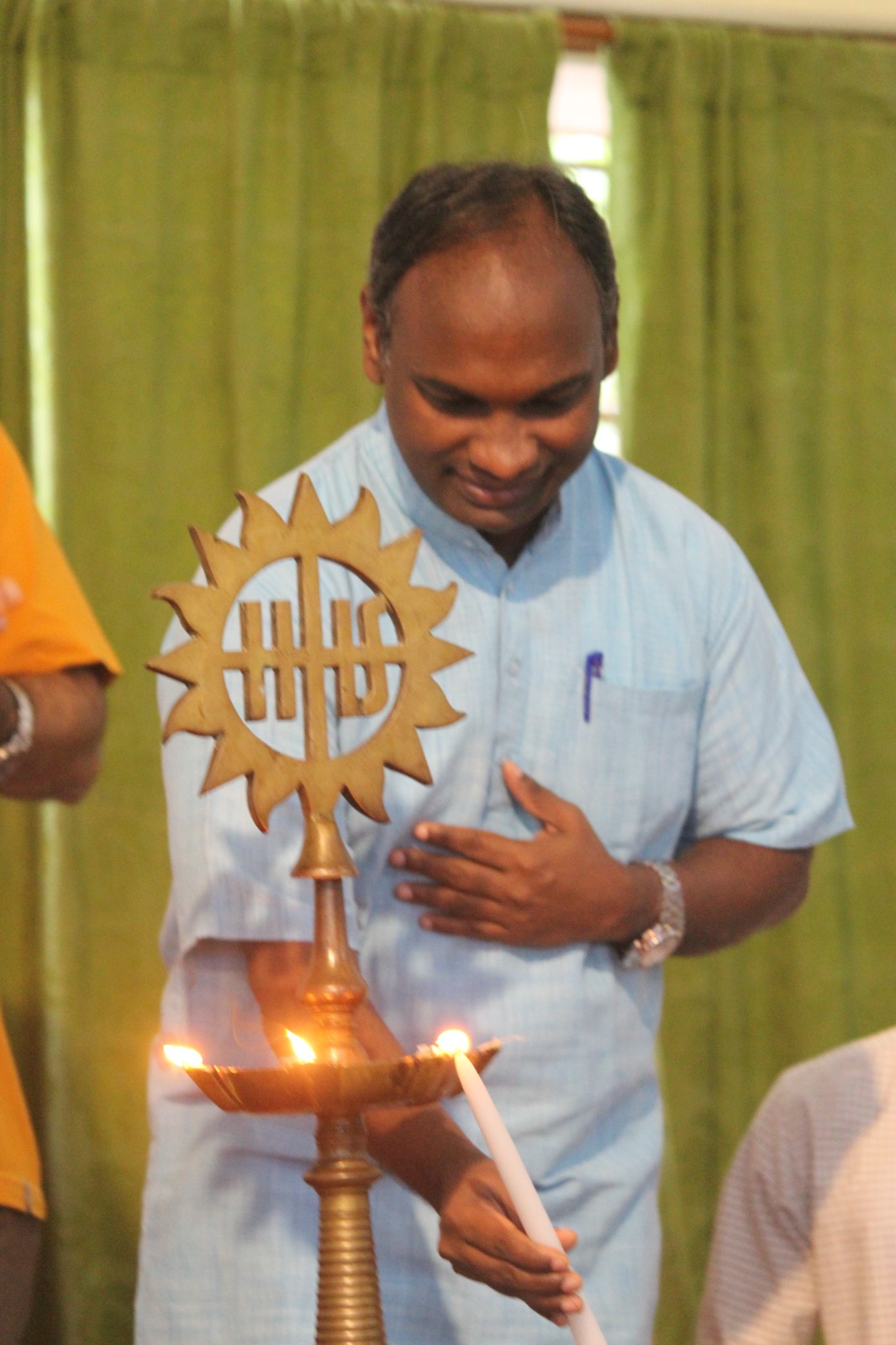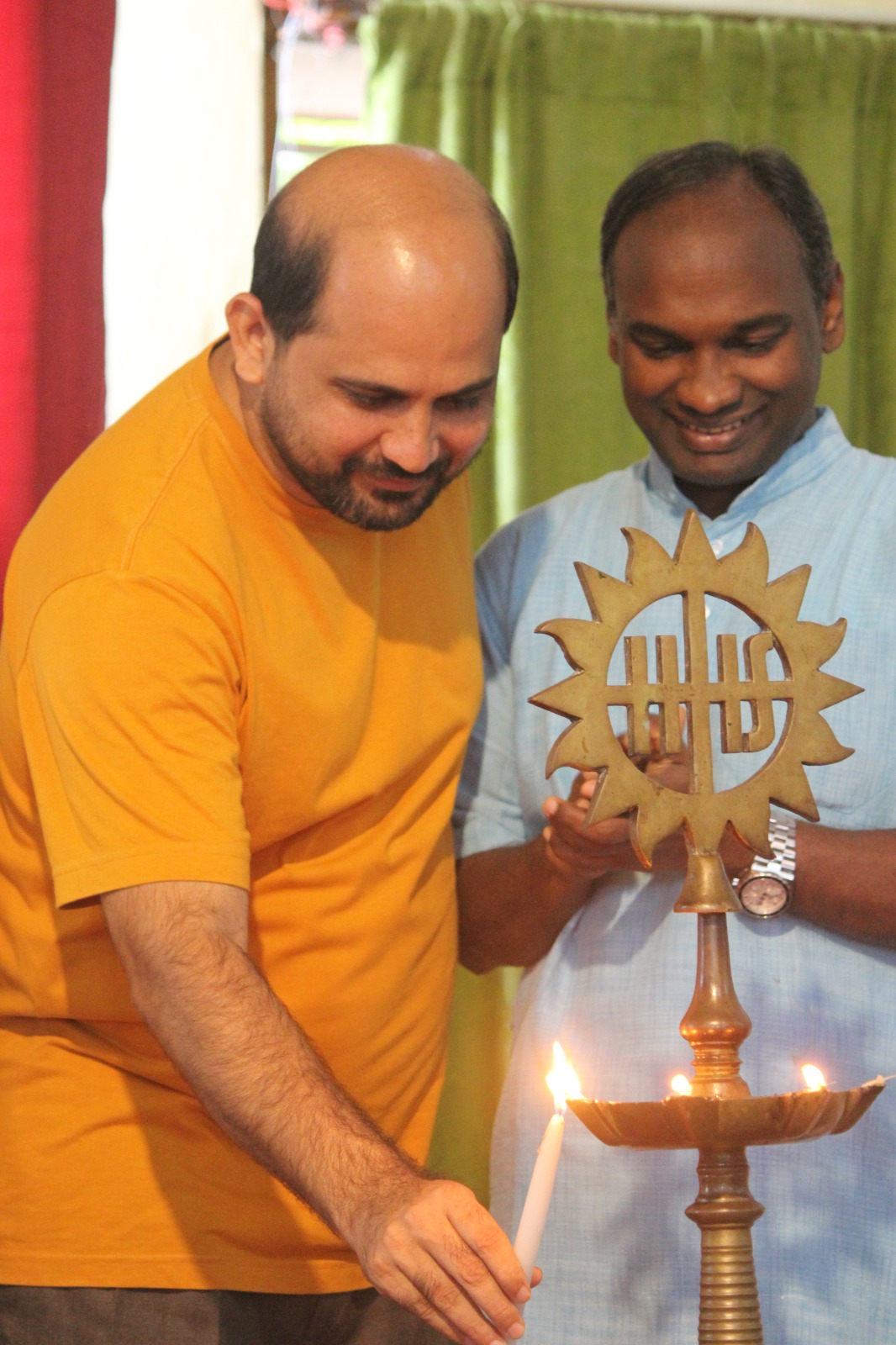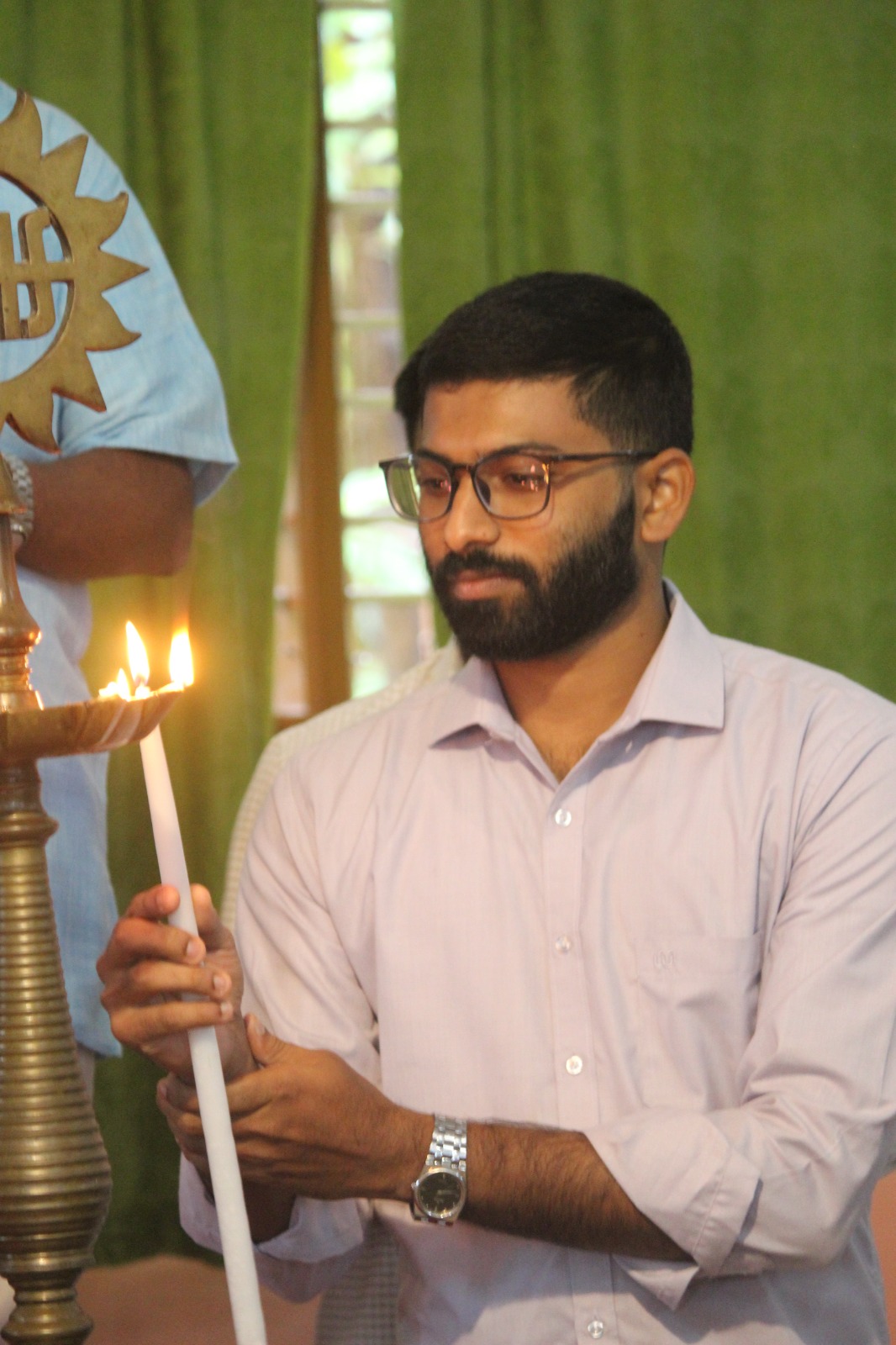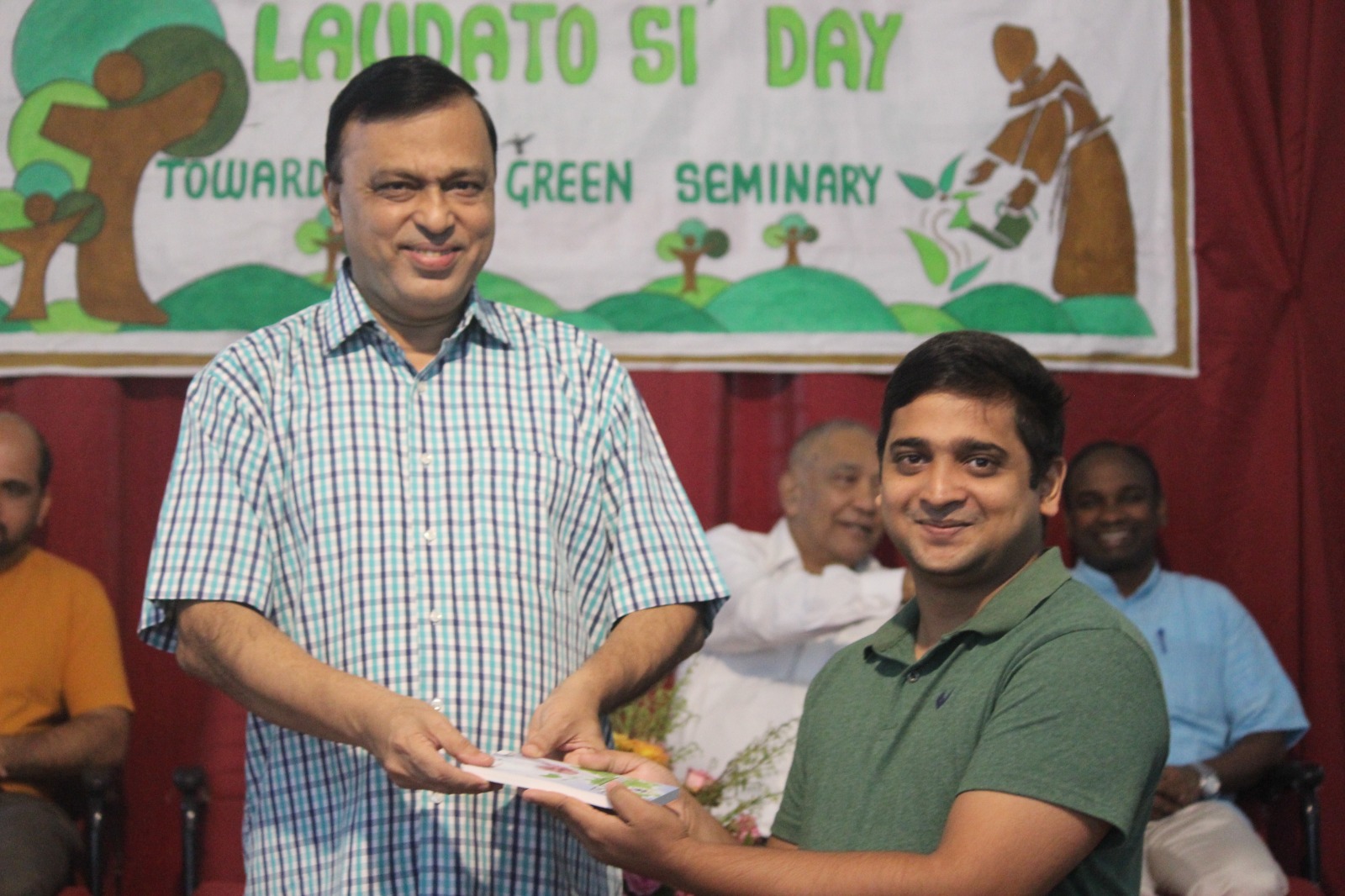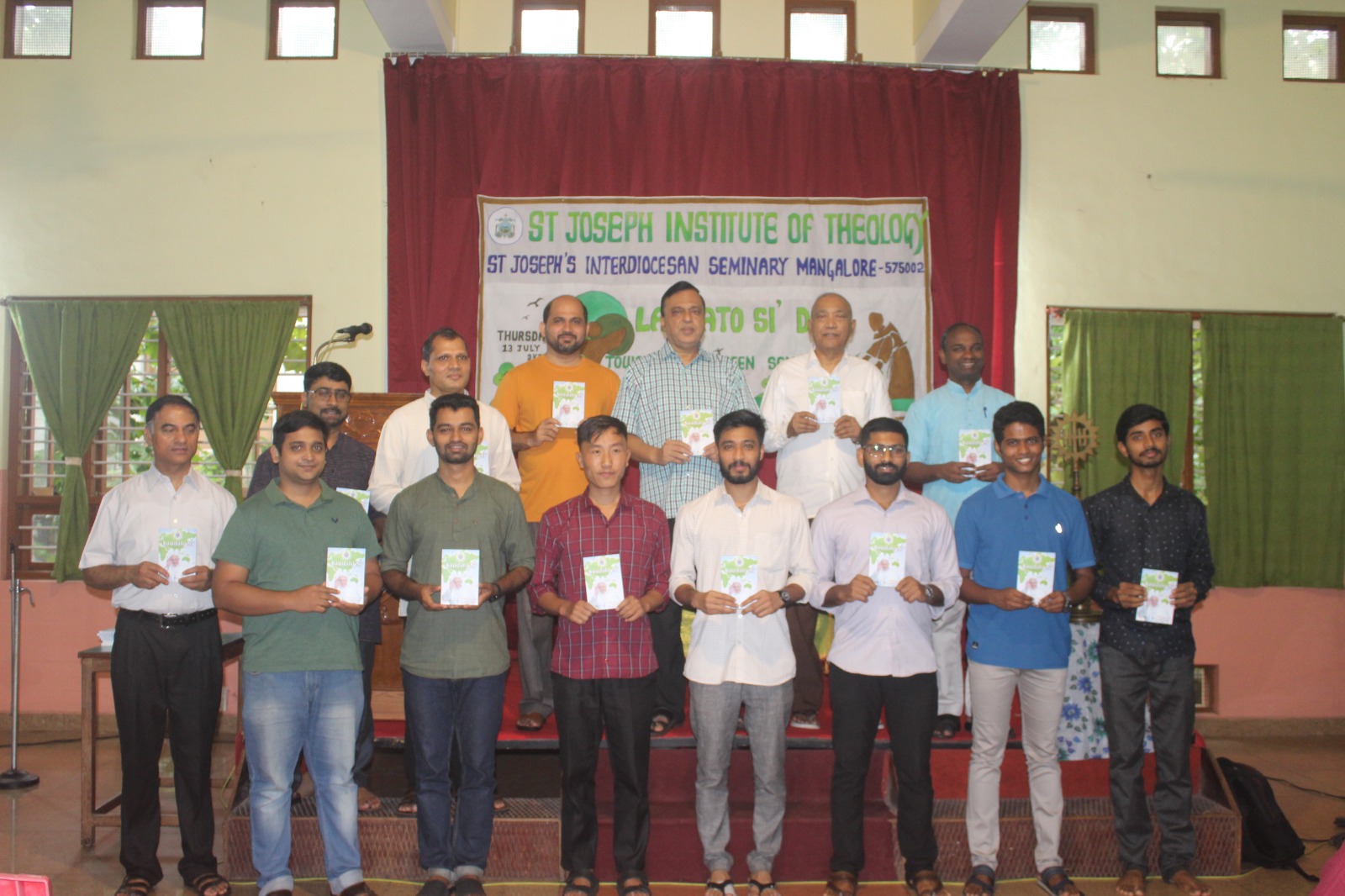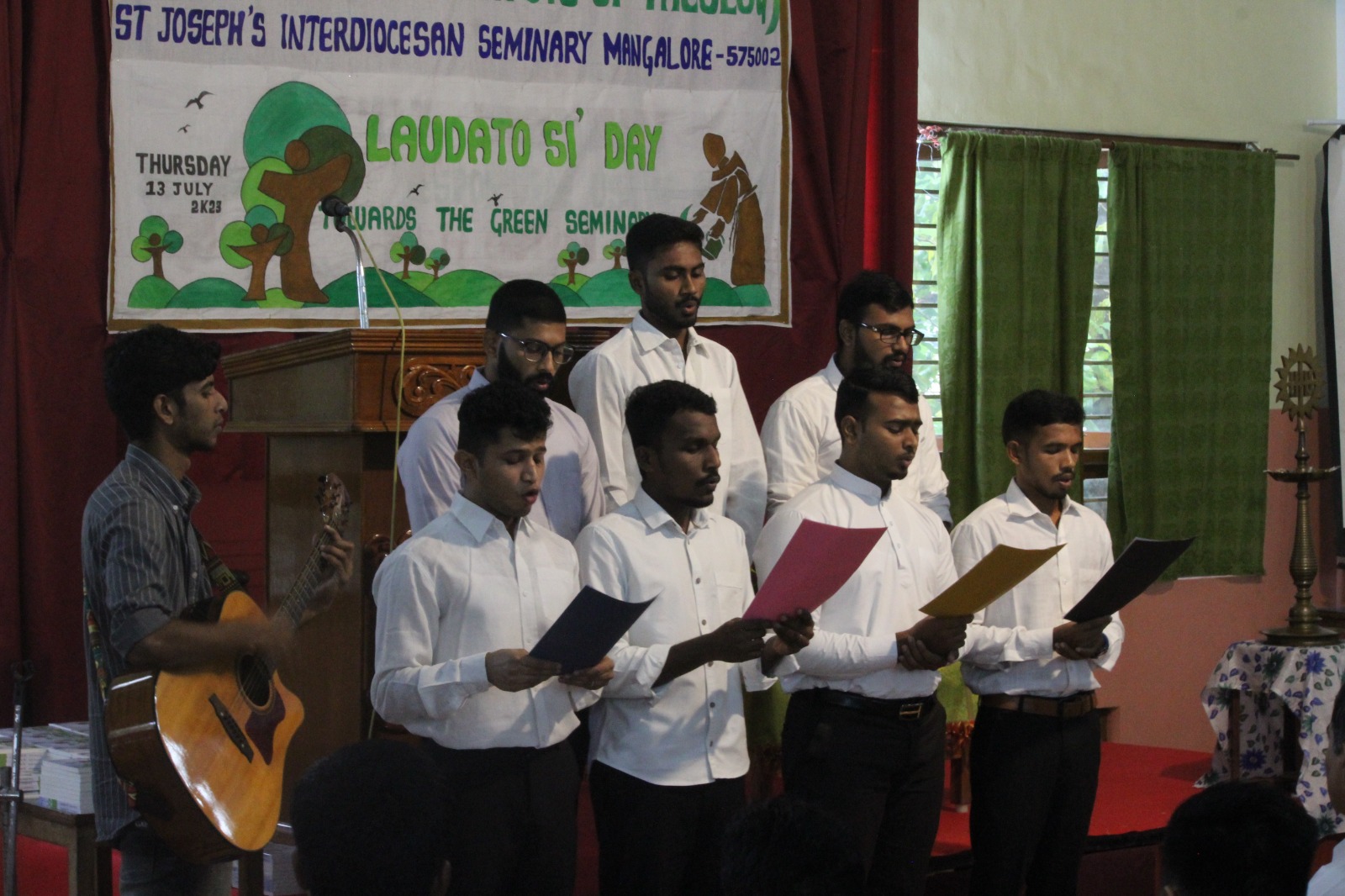Profound Observance Illuminates the Spirit of Laudato si day
13-07-2023St Joesph’s Inter-Diocesan Seminary in collaboration with the Catholic Diocese of Stockholm, Sweden to promote the care of our mother earth, officially launched the Laudato Si project in the campus on 13/07/2023 at 8:30 am. The programme started with a prayer song, followed by a welcome. Most Rev. Dr. Aloysius Paul D. Souza, Bishop Emeritus of Mangalore Diocese; Rev. Fr. Ronald Serrao, the Rector of St. Joseph’s Seminary; Fr. Alex Kalarikkal, the Director of St. Joseph Institute of Theology; and Fr. Naveen Pinto, the Administrator of the Seminary, served as dignitaries of the day and inaugurated the programme by lighting up the lamp. Followed by the distribution of the book copy of Laudato Si encyclical to all the students. The entire program was judiciously well organised by the HOD of the St. Joseph Institute of Theology, Rev. Dr Antony George Pinto. Fr Rajesh Rosario, the professor in the theology department, summarised the Laudato Si encyclical and emphasised that the encyclical is ground breaking document as it gives importance to ‘cosmocentrism’ rather than ‘anthropocentrism.’ Later, Fr Alex Kalarikkal, the director of St Joseph Institute of Theology, engaged in a session on the pragmatic implications of the Laudato Si encyclical and made the remark that each individual has to take action towards the betterment of Mother Earth. A group discussion was held under the guidance of Fr. Joswin D. Souza, a professor in the philosophy department, to make the theoretical session more practical. For fifteen minutes, twelve groups discussed twelve distinct environmental and Laudato Si related questions, subsequently, they shared with the congregation their suggestions and opinions. Some of the suggestions and opinions include the following: • Implement a plastic-free policy on campus to minimize plastic waste. • Establish a system to collect and repurpose useful plastic waste. • Install solar panels to harness solar energy and reduce reliance on non-renewable sources. • Organize lectures and educational events to raise awareness about sustainable practices. • Encourage people to shift away from the throwaway culture and promote reusable alternatives. • Utilize street plays as a creative way to educate and engage the community on environmental issues. • Emphasize the importance of recycling and encourage the use of recycled products. • Establish a "Green Army" or student group dedicated to promoting sustainable practices on campus. • Reduce the use of electric goods and explore energy-efficient alternatives. • Promote plant adoption within the campus to enhance green spaces and improve air quality. • Raise awareness about sustainability through talks and sermons within the campus community. • Encourage double-sided printing and the use of both sides of the paper to reduce paper waste. • Encourage the habit of turning off lights when not in use to conserve electricity. • Promote responsible electricity usage and spare electricity wherever possible. • Implement water-saving measures, such as fitting taps with aerators and promoting responsible water usage. • Reduce excessive plastic usage and explore alternatives like reusable containers and cloth napkins. • Schedule campus cleaning activities only once a week to reduce resource consumption. • Encourage the use of long-term bags made from sustainable materials. • Promote the concept of "wealth out of waste" by encouraging creative reuse and repurposing of materials. • Implement solar energy solutions and adopt water conservation practices to reduce environmental impact. • Encourage the use of pens with refillable ink cartridges to reduce plastic waste. • Prioritize the use of recyclable materials and products. • Establish proper e-waste management systems to ensure the responsible disposal of electronic waste. The programme concluded with the instruction for the students, to put the plan into action by working and cleaning the campus.
